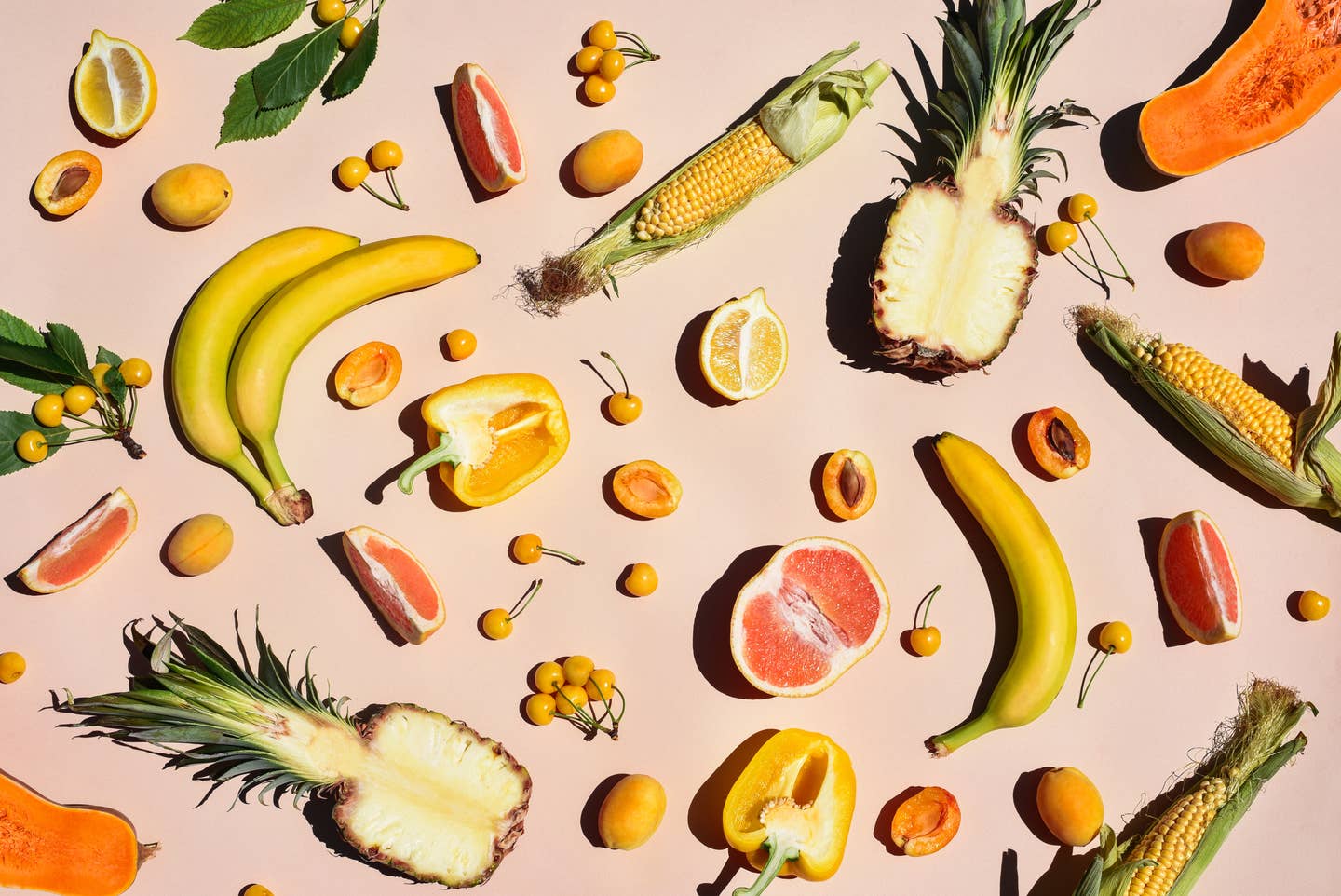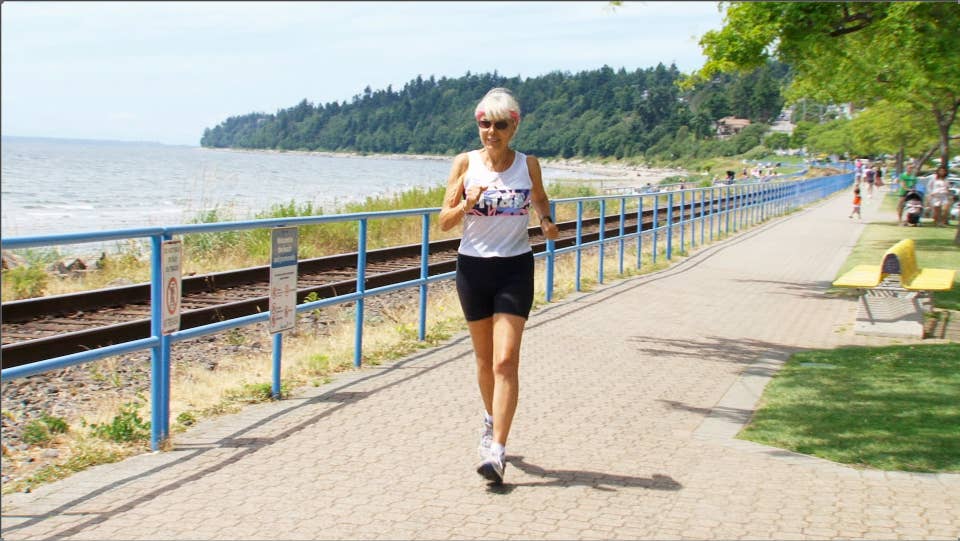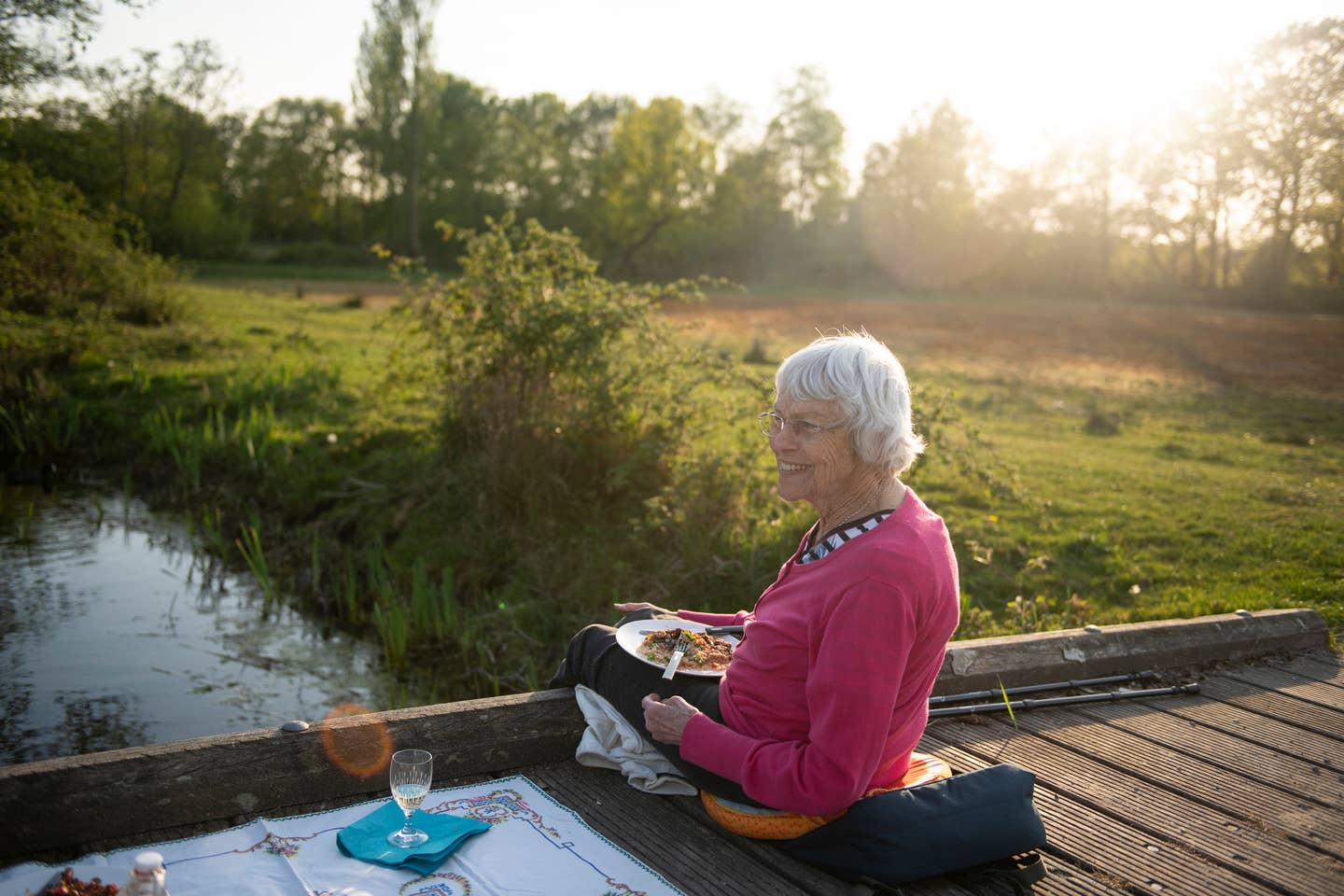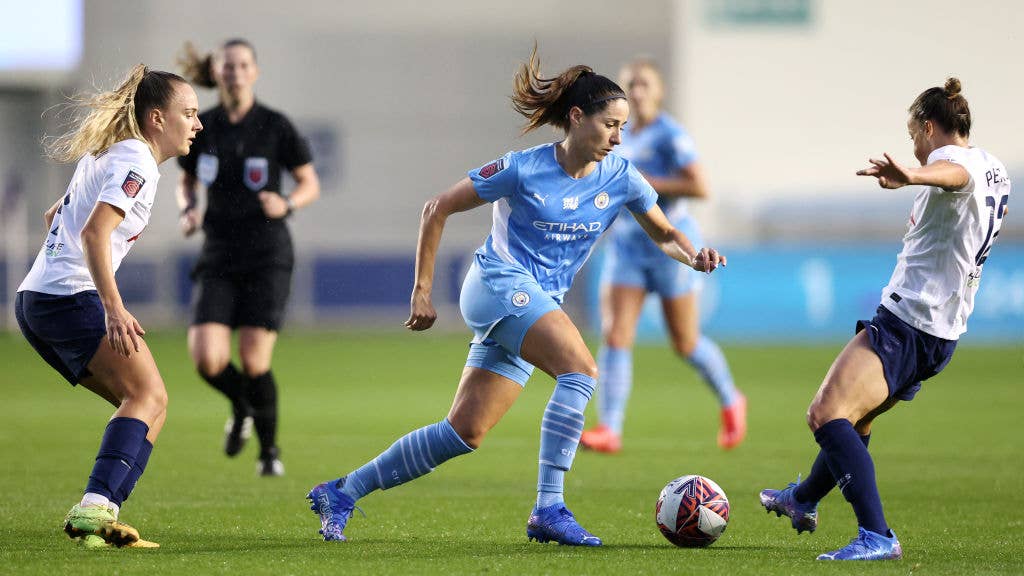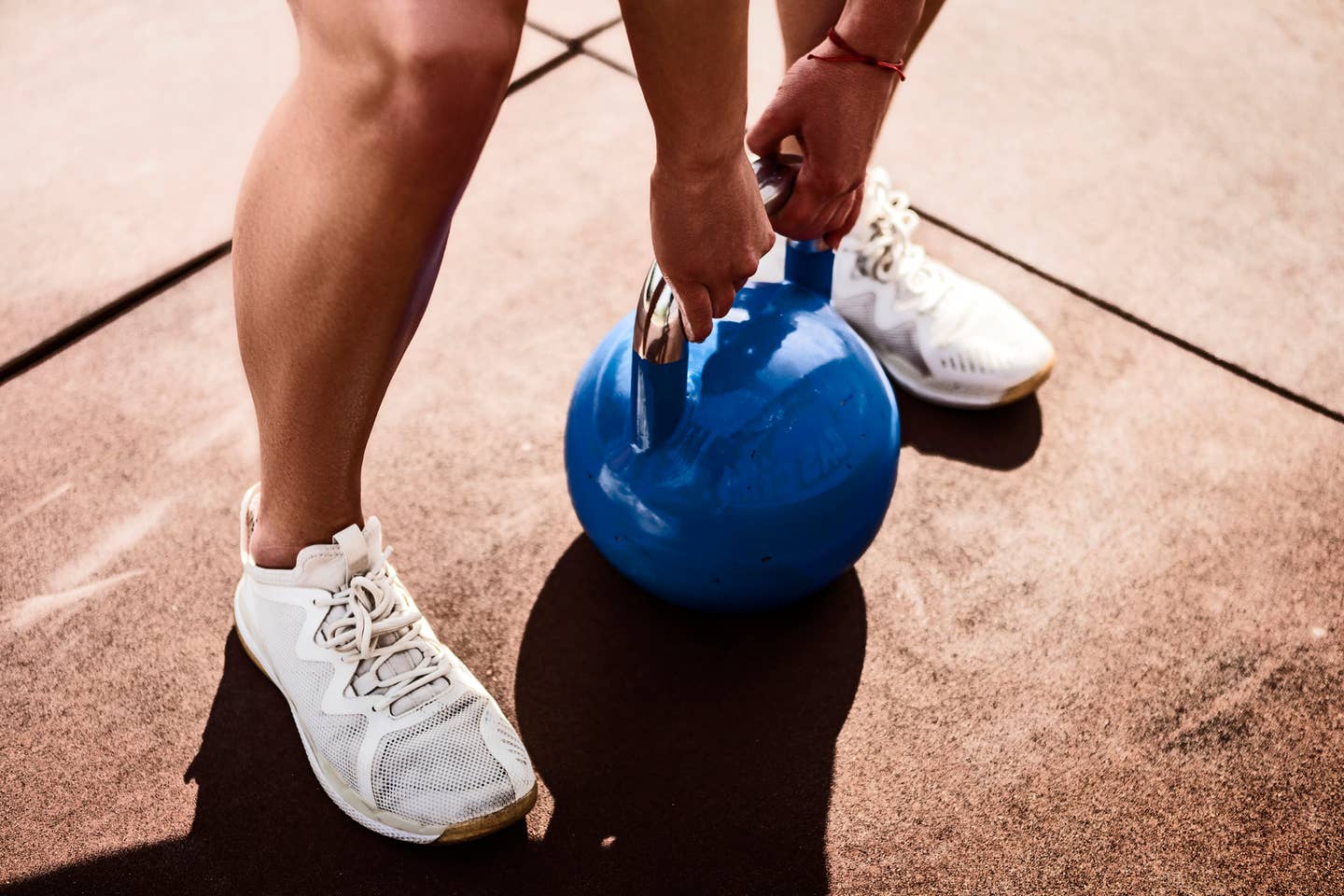
This Military Vet and Mom Cured Her Mild Anemia With Diet. Here’s How
When a ten-year military veteran was suddenly feeling sleepy all day, more than the usual fatigue of being a busy mother of a young child, she knew something was off. She was not eating meat at the time and when her blood worked showed that she had mild anemia, her doctor tried to convince her she should go back to eating beef. But the mom knew there was a healthier option, and took her health into her own hands, switching to a whole food plant-based diet with no "faux" meat in it, nor any processed foods at all. She loaded up on research into what to eat and changed her diet and her life, and cured her condition.
"At this point, I hadn’t realized that for health reasons, it was best to be whole-foods plant-based," recalls Desiree Mora. "I had done the research. I also knew that most doctors only get about four to eight hours of nutrition in medical school."
Being Borderline Anemic Sparked Her to Learn How to Eat Iron-Rich Foods
This brush with a health condition prompted her to turn to a whole-food, plant-based diet, full of nutrients, and to fight her fatigue naturally, through a healthier diet of foods that are rich in iron, such as beans, lentils leafy greens, and nuts and seeds. Here is the full list of iron-rich foods to eat on a plant-based diet, according to an RD.
Mora then decided to turn her borderline anemia, a condition that millions of Americans suffer from, into a solution-driven company and launched a line of supplements called VictuaLiv, designed for people who want to be active and strong while eating a plant-based diet. She credits switching to a whole-food, plant-based diet for bringing back her energy, her iron levels, and her optimal health, and transforming her life.
The Beet: Why did you go fully plant-based?
Desiree Mora: When my son (now five) was six months old, I began introducing solid foods into his diet. I was told to start with fruits and vegetables, and I began making these foods baby-friendly at home. Being a full-time mom at the time I began researching the best foods to make for an infant or growing child. This led me to consume all food-related media, including food documentaries. I watched Vegucated (thinking it would be about vegetables) and my life changed.
I had always been into wellness and fitness and thought of my diet as healthy. I stopped eating pork when I was fourteen after reading some books on how unhealthy it was, and I had replaced cow’s milk with soymilk years ago due to its high-fat content. I had never, however, stopped to think about the ties to animal cruelty and the detriment of our environment to our food choices. I was shocked. Being an avid researcher, I set out to verify all of the information I saw on the documentary, and, to my horror, all of it was true. The more I verified, the more I began to remove animal-based foods from my diet. It wasn’t long until I made the decision to go vegan. It’s been about five years since that day.
The Beet: What was the health impetus to going plant-based?
DM: I didn’t necessarily have a health impetus. As I began to learn more about the vegan diet, I became convinced that plant-based foods are healthier for the human body than animal-based foods; the scientific evidence is overwhelming. I also did it for ethical reasons. Becoming vegan was better for me in every way and gave me values I am proud to share with my son and the world.
The Beet: What were the immediate benefits of eating plant-based?
DM: I did lose weight… however I had gained a good amount during pregnancy. Something else I noticed was my food waste diminished considerably. I was always throwing away cheese or meats that had gone bad in the fridge. Plant-based foods seem to last longer.
The Beet: What were the biggest challenges of eating plant-based?
DM: I grew up dining on meals separated three ways on my plate: One meat, one carb, one vegetable. My biggest challenge was replacing the meat. The easiest option was to substitute with faux meat. I’d buy everything I could find (chicken, burgers, fish…). My energy began to dip. I was always tired and sleepy. At this point, I hadn’t realized that for health reasons, it was best to be whole-foods plant-based.
Worried, I got some blood work done and my doctor told me I had borderline anemia, and I needed to eat meat. I told her I was vegan, and she pushed back, saying I had to “stop that.” But I knew better, I had done the research. I also knew that most doctors only get about four to eight hours of nutrition in medical school.
Most Americans, regardless of their diet, have nutrition gaps. On a plant-based diet, I knew I would have fewer nutritional gaps, but that I would probably want to take an iron supplement and a B12 supplement or make sure my foods were enriched with these. I began searching for a vitamin that would fulfill my needs as a vegan. I couldn’t find anything. There was nothing on the market except supplements with an enormous list of nutrients, most of which cancel each other out. I researched it. I know! This is when I decided I would have to make my own supplement if I wanted the key nutrients that were right for me. That’s how VictuaLiv was born.
As I mentioned, at the time I wasn’t aware that a whole foods plant-based and B12 diet gives you everything you need to thrive. However, even now that I know this, I don’t have the time or headspace to cook every day. I can’t always shop for fresh fruits and veggies and convenience and restaurant food do end up in the house. We don’t all eat like Dr. Neal Barnard every day, even though we try.
Between work and being a mom and the stress of covid, I can’t always be perfectly eating legumes, nuts, seeds, whole grains, dark leafy greens, veggies, and fruit. Let’s be realistic: plant-based ice cream, faux meat, and snacks do end up in my diet sometimes, which is why I wanted to be more sure than ever that I had a supplement that was right for me, my sort of ‘worry-free' card to get everything that I needed.
The Beet: Biggest triumph along the way?
DM: Being an entrepreneur, I wanted my next business had to somehow promote the vegan lifestyle. Not finding a supplement at the time for my new vegan diet gave me (and my business partner) the idea of creating one. It took a long while, but having my heavily researched, scientifically-backed multivitamin VictuaLiv – meaning food and life, custom-made for my diet, from sources I trust, in my hands, has been the biggest triumph in my journey. I have since fully recovered from borderline anemia, and feel more energized than ever. I hope to help others on their journey as well.
I want people to know that they have a way to get all the nutrients they need when transitioning to a plant-based diet…even if they treat themselves to some plant-based burgers and fries.
The Beet: What's your favorite snack on a whole food plant-based diet?
DM: Mixed nuts; whatever fruit is around (banana, apple, mandarin), chips, and hummus.
The Beet: What do you eat for breakfast, lunch, and dinner?
DM: I definitely incorporate more veggies and grains every chance I get.
Breakfast: Usually avocado toast; oatmeal with fruits; pancakes with fruit or chocolate when I’m feeling fancy, Arepa with tofu scramble and vegetables (a treat). Tea or coffee with plant milk.
Lunch: I normally have takeout or leftovers for lunch: (all veggie) hummus wraps, burger and fries (guilty pleasure), empanadas (filled with spinach, or faux meat, or potatoes and veggies in curry), arepas with black beans and avocado, lentil or bean soup, water or soda stream soda. I normally take two VictuaLiv with my lunch or dinner.
Dinner: Spaghetti and faux meatballs, veggie pizza (no cheese if no vegan cheese available), soft tacos with faux chorizo and salad, vegan ravioli w/chopped cooked vegetables, miso soup with tofu steak and veggie noodles (another treat!). Water or soda stream soda.
The Beet: What advice would you have for somebody?
DM: Incorporate a daily multivitamin in your routine, not because whole food plant-based diet can’t give you what you need, but because life keeps you busy, and you may not always find the time or headspace to eat everything you need - every meal - every day.
You may think iron is synonymous with meat, and while animal protein certainly has it, that doesn’t mean you can’t get enough iron if you eat a mainly plant-based diet. In fact, you can, if you know the right foods to choose and how to pair them. The daily recommendation from the National Institutes of Health (NIH) for iron intake is 18 milligrams (mg), but not all iron sources are created equal. Here’s what plant-based eaters need to know about iron and which iron-rich foods are best to help reap the benefits.
1. White Mushrooms
1 cup cooked = 3 mg iron (17% daily value (DV))\There are many reasons to eat mushrooms on the regular, but their meaty texture (try a Portobello cap as a meat replacement for a burger!) and ample protein are two of the highlights. Add them to your stir-fry, tacos, or even instead of meat in a faux Bolognese sauce.
2. Lentils
1/2 cup = 3 mg iron (17% DV)You don’t need to eat a huge serving of lentils to get a hearty dose of iron. Just a half-cup provides close to 20% of the iron you need in a day. Just like mushrooms, lentils have a meaty texture that works well in burgers, tacos, or grain bowls.
3. Potatoes
1 medium potato = 2 mg iron (11% DV)The poor potato has gotten such a bad rap. Fear of this carb-rich spud is unwarranted because it’s actually an affordable and delicious source of iron and potassium. So go ahead and have that hash, baked potato, or potato soup and leave the skin on for some added fiber.
4. Cashews
1 ounce = 2 mg iron (11% DV)Most nuts contain iron, but cashews are a standout because they have less fat than some of the other nuts. One ounce of cashews (about 16 to 18 nuts) has 160 calories, 5 grams of protein, and 13 grams of fat. Add a handful of cashews to smoothies, soups, or sauces for some extra creaminess.
5. Tofu
½ cup = 3 mg (15% DV)Not only does tofu have plenty of protein and calcium, but it’s also a good source of iron. It’s very versatile and takes on the flavor of any sauce or marinade, making it a great meat substitute.Keep in mind that you can easily get the iron you need from a plant-based diet.
More From The Beet

